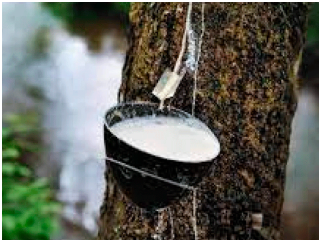The Consortium of Rubber Sector Actors of Liberia (CORSAL), has expressed gratitude to the media and all progressives for their unwavering dedication and commitment to the struggle of economically deprived Liberians, particularly those in the rubber sector.
Addressing the media, the advocacy group representing stakeholders in the rubber industry, highlighted the impact of Executive Order #124, issued by former President George Weah on November 23, 2023, which banned the exportation of unprocessed rubber from Liberia saying it inflicted significant hardship on those reliant on the rubber trade.
After six months of advocacy and discussions, President Joseph Boakai lifted the ban on May 23, 2024, a move CORSAL praised as a nationalistic decision aimed at empowering local Liberians and stimulating economic growth.
According to CORSAL, the action of the President is aimed at empowering local Liberians to be involved in economic activities that contribute to the overall growth and development of our nation.
CORSAL thanked President Boakai for initiating what they term “The Rubber Revolution – Liberians Taking Charge for Communal Economic Growth;” this revolution, according to the group is transforming ordinary rubber farmers and other sector actors from impoverishment to middle-income earners.
The consortium also acknowledged the efforts of several lawmakers and government officials, including Fody Fahnbulleh, Representative of Electoral District 7 Bong County, Speaker Fonati Koffa and Senators Albert Chie, Jonny Kpehe, Gberzorhgar Findley, Joseph Jallah and Nyan Tuayen.
The group praised Commerce Minister Amin Modad, Justice Minister Oswald Tweh, NIC Chairman Jeff Blibo, and the Economic Advisor to the President, Sahr Johnny for their dedication and support in ensuring that the ban is lifted.
The group claimed that since the lifting of the ban, the rubber sector has experienced significant positive changes and key among the improvements include a 10% increment in rubber prices, the removal of restrictive selling schedules, and more favorable buying practices from concessionaires.
They said these changes have led to lower transportation costs for farmers, reasonable prices for farm supplies, and a more competitive market environment.
CORSAL announced that it is implementing new structures and regulations to ensure that the rubber trade is conducted by authorized individuals and entities with valid identification and licenses and that these measures aimed to enhance government’s revenue from rubber exports and ensure compliance with export requirements.
The advocacy group is focused on the construction and operation of Liberia’s first commercial rubber processing plant which will enable Liberians process their rubber domestically, adding value to their products and potentially creating local millionaires in the rubber sector.
Despite the recent progress, CORSAL noted that the sector will need at least 12 months to recover fully from the negative impacts of the ban as farmers, brokers, and exporters all suffered significant losses during the moratorium, with some farms closing, rubber quality deteriorating, and substantial financial losses incurred.
CORSAL reaffirmed its commitment to the rubber trade and the construction of the processing plant, emphasizing the potential for significant economic improvement for smallholder rubber farmers and other sector actors.

